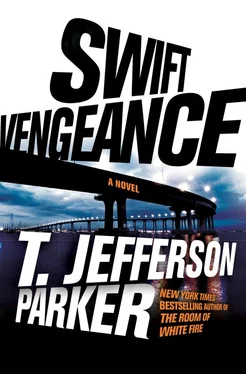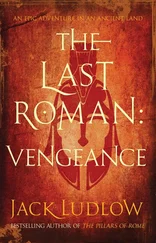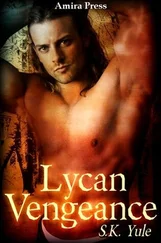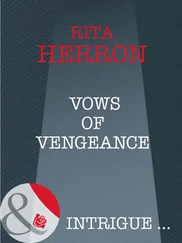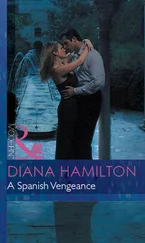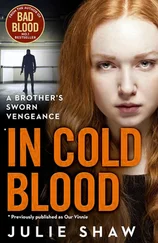“But the biggest prize of all was to take out a target ourselves. Headhunters, baby, doing our deadly best. That usually meant a target in tight quarters. In a vehicle, maybe. Or a home. Something the F-16s were too fast for. We’d use Hellfire missiles or, even better, these two-footers we called the Small Smart Weapon. Those are something. We could take out a guy sleeping in bed but his wife in the kitchen would be fine. I took lives, Roland. I’m not ashamed and I’m not proud. Saved lives, too — American and others. But I’ve never actually set foot on Syrian soil. I’d like to, someday. To just stand in the middle of that desert with my own two boots planted in the sand. It would make me feel vested. To have the part of me that wasn’t there there. I sometimes think I owe it to them. The men I killed. I’ve always thought it’s a little rude to kill a man from halfway around the world. Isn’t that like saying, You, sir, are bad enough for me to kill, but I don’t want to set foot in your miserable country ?”
“Rude,” I said. “I’ve never heard it put that way.”
“Mom drilled us kids on manners,” Lindsey said, eyes still locked on the flat tan country below us. “She was very strict. Very British. Mix that with conservative Muslim ideas of behavior and you get major manners. I’ve never asked her, but Mom would say it’s rude to kill a man from seven thousand miles away, then head home to your baby and hold him in the rocker in the morning sun and get that nice warm bottle up to his funny little face and think about the nice future he’s going to have, all safe and secure because Mommy pickled some guy in Aleppo an hour earlier. The Headhunters tried to be funny about things, to make them less horrible. Like, we invented three sought-after results when we fired on an enemy. If we got close enough to our target, we demolished him. If we hit him directly, we pulverized him. But if we hit him directly in the torso, we demulverized him. Demulverization — highest honors. And that’s what I’d think about when I’d be rocking Little John. That’s where the vodka came in. Just a way of adding even more distance to those seven-thousand-plus miles. Or sometimes it was the roulette wheels downtown. When I stepped into a casino, there was no Aleppo. No Iraq. No home, even, with Johnny crying and Brandon threatening to rat me out to Child Protective Services. None of that. Just the glide of that white marble ball around and around the wheel. And me with all my might focused on making it drop where I wanted it to. You can send a missile into a man’s chest from half the world away? Why not drop a little ball into black thirty-three or red forty-eight from just a few feet back? Easy. Simple. I’ve done it. Those are my lucky numbers.”
“But you broke that cycle, Lindsey,” I said. “You clawed your way to the other side.”
“Yeah, sure I did,” she said softly. She still hadn’t taken her eyes off the land below us.
“Baghdadi was the prize,” she said. “The next bin Laden. Every grunt on the ground, every Special Forces guy, every pilot and gunner in the sky wanted Baghdadi. We spent hours looking down on Aleppo and the villages around it. We knew he was moving because that’s how you stayed alive down there. Thousands of people that might be him. Thousands of vehicles that might be carrying him. Thousands of buildings and bunkers and tunnels. The Reaper can stay in the air for a whole day without refueling. The longest they’d let us work was twelve hours, then you had to head home. That meant two hours in the air, two hours off to do paperwork, eat, rest. Then back in the air for two more hours. So we flew three missions a day. Staring at that screen. On a lot of my missions it was night over there, so the infrared video was always murky. Six hours of that and your eyes ache. Get off shift and walk outside and it’s just starting to get dark in Las Vegas.”
I cleared our landing with the Meadows Field tower, got my approach and a standby.
“But you know about that kind of thing, from Fallujah,” said Lindsey. “You know about killing somebody and what it does to you. Even when it’s your job and you’re doing something good and the dead guy deserved it. It still takes something away from you. Or maybe you don’t see it that way.”
“I still think about it,” I said. “How to deal with it. How you decide to deal with it. How you deal with what you can’t decide.”
“The things that are bigger than your deciding.”
“Those exact things.”
She was watching me then, the earth widening below us, landing strip a distant black dash.
“Would you like to hear my story about killing Zkrya Gourmat someday?” she asked.
“You’ve never said a word about it.”
“Zkrya Gourmat was a high-value ISIL leader, back when we called it ISIL. Killing him wasn’t an Air Force assignment. It was for two of the acronyms. In this case, CTC and JSOC. They draw up the so-called ‘kill list.’ The formal name for that list is the ‘Disposition Matrix.’”
The CIA’s Counterterrorism Center and the Joint Special Operations Command, I thought — the odd couple from the feuding families of intelligence and the military. Often in bed but never married. I’d brushed up against both of them in my Marine days. And just last year I’d collided with some of them on my own property, with mortal results.
I told Lindsey I’d like to hear her story.
“Let’s save it for the flight back,” she said. “After you’ve met Kenny and Voss, it will make more sense.”
Kenny Bryce had chosen a no-frills café called the Mine for the Headhunters’ 1100 hours strategy breakfast. The morning was cool and bright. I hadn’t been in Bakersfield in ten years. I’d always liked its rough history and reputation. A few years ago, The Guardian named Bakersfield PD America’s Deadliest Police Force, as it had, at the time, the highest number of per capita police shootings in the country.
Voss arrived exactly on time, as ex — military officers tend to do. He was a tall, beak-nosed man with short, back-brushed hair and quick eyes. Lindsey rose and they hugged.
She introduced us and Voss offered me his hand. “Are you taking good care of my best sensor?” he asked.
“I’m trying,” I said.
“She’s worth all the trouble.”
“You liars,” she said.
They caught up. Voss’s wife, Lindsey’s divorce, the kids. Then the important stuff: acronym-riddled anecdotes, comic memories, gossip and speculation. I half listened and enjoyed the warm December sun on my face. The Mine’s patio had Christmas lights along the roofline and a manger scene tucked into a shady corner.
After twenty minutes and no Kenny, Lindsey left him a message. We ordered and ate. I had the Golden Nugget Omelet. The waitress brought refills. When we finished eating, Voss left Kenny another message. His annoyance hung in the air with the smell of the coffee.
Which put us at the front door of Kenny Bryce’s apartment at precisely 1220 — one hour and twenty minutes after his botched arrival time.
Tuscanola was a newer complex, swirled white plaster and prefab stonework and wrought-iron touches on the windows. The porch was good sized and Kenny had furnished it with a bistro set. A potted succulent and an ashtray sat on the round tiled table. I noted that the long carport across from Bryce’s row of apartments was roofed with solar panels and hung with floodlights and security cameras mounted high up on alternating stanchions.
Voss knocked and waited. The door sounded solid and the peephole bezel looked shiny and new. “Remember that Christmas party when Kenny got blasted and decided to sleep in the restaurant booth?” he asked.
Читать дальше
